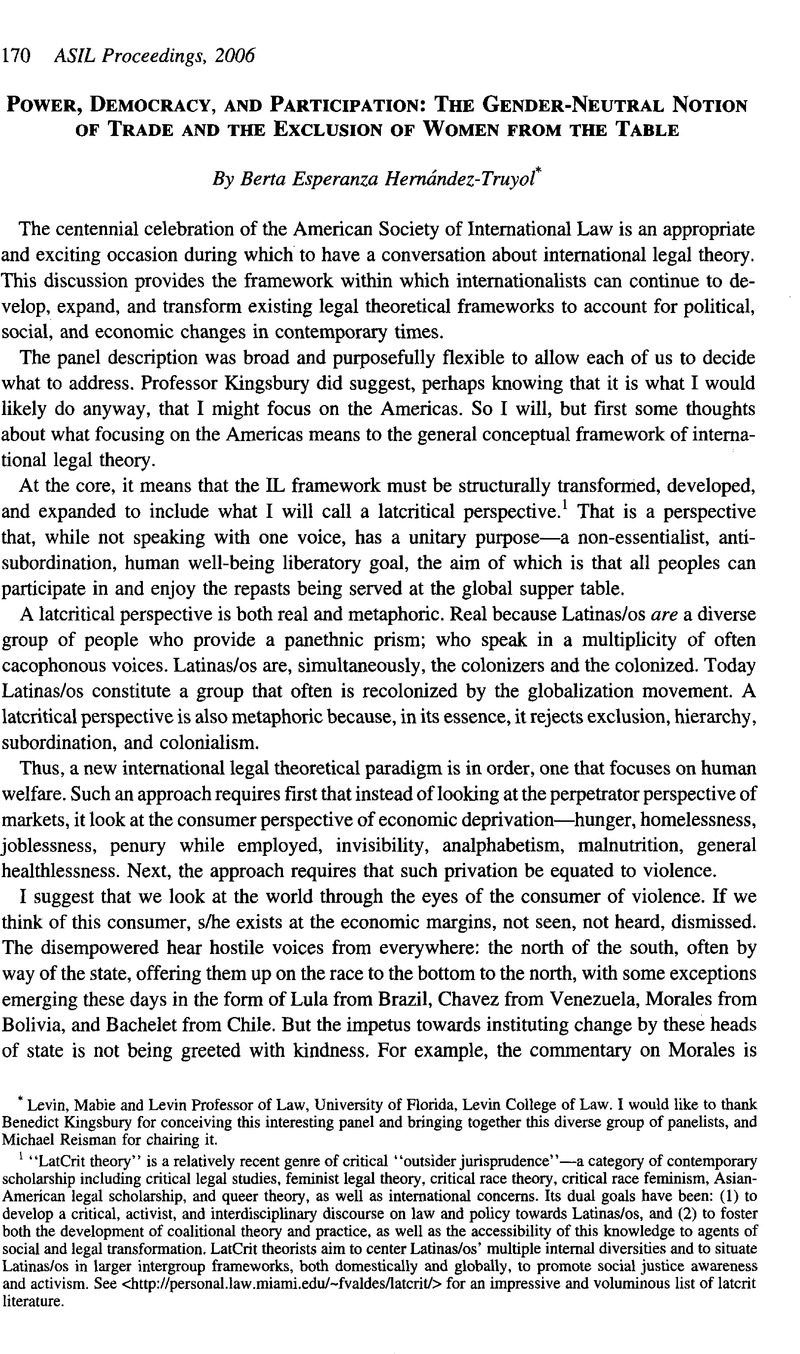No CrossRef data available.
Article contents
Power, Democracy, and Participation: The Gender-Neutral Notion of Trade and the Exclusion of Women from the Table
Published online by Cambridge University Press: 28 February 2017
Abstract

- Type
- U.S. International Law Theory: Possibilities and Problems
- Information
- Copyright
- Copyright © American Society of International Law 2006
References
1 “LatCrit theory” is a relatively recent genre of critical ‘ Outsider jurisprudence”—a category of contemporary scholarship including critical legal studies, feminist legal theory, critical race theory, critical race feminism, Asian-American legal scholarship, and queer theory, as well as international concerns. Its dual goals have been: (1) to develop a critical, activist, and interdisciplinary discourse on law and policy towards Latinas/os, and (2) to foster both the development of coalitional theory and practice, as well as the accessibility of this knowledge to agents of social and legal transformation. LatCrit theorists aim to center Latinas/os’ multiple internal diversities and to situate Latinas/os in larger intergroup frameworks, both domestically and globally, to promote social justice awareness and activism. See <http://personal.law.miami.edu/∼fvaldes/latcrit/> for an impressive and voluminous list of laterit literature.
2 Author’s translation: “that Indian.”




